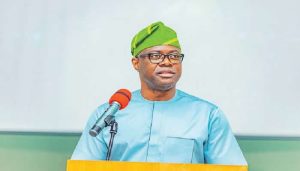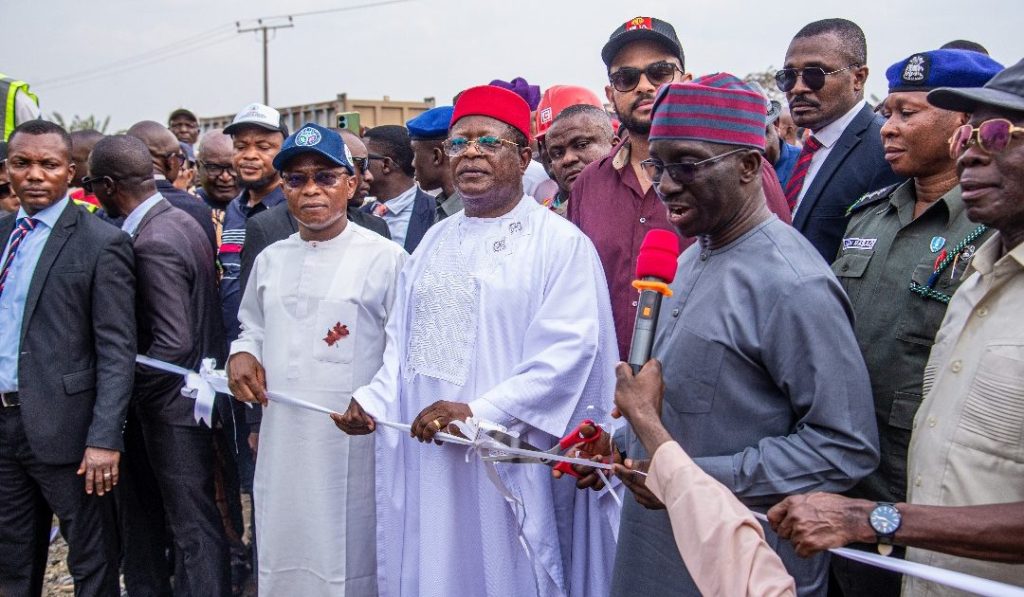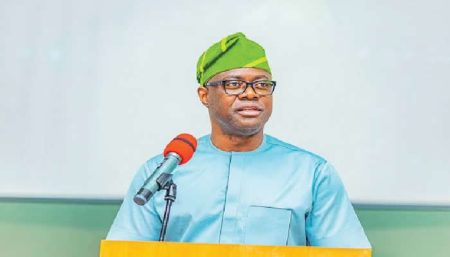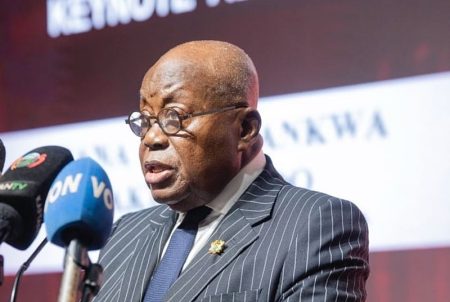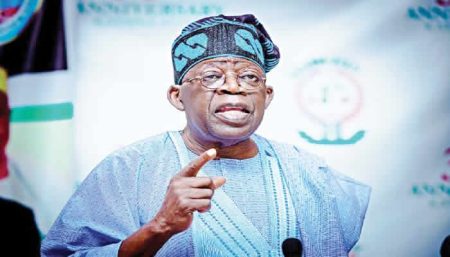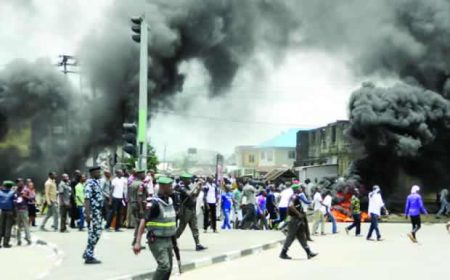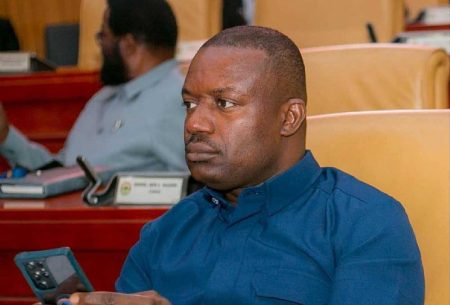The dualization of the Ekpoma-Auchi-Okpella-Okene-Ajaokuta Expressway, spanning sections two to four, marks a significant stride in infrastructure development within Edo and Kogi States. Inaugurated by President Bola Tinubu, represented by the Minister of Works, Dave Umahi, the project underscores the administration’s commitment to revitalizing federal roads nationwide, fostering economic growth, and improving the lives of Nigerians. This critical roadway serves as a vital artery connecting the two states, facilitating the seamless movement of goods and people, and promises to unlock the economic and social potential of the region. The project’s emphasis on durability, with a lifespan exceeding 50 years, signals a departure from past practices and aligns with the President’s “Renewed Hope Agenda,” promising long-term benefits for communities and businesses along the corridor.
The inauguration ceremony, held in Ekpoma, Edo State, was not merely a symbolic groundbreaking but a testament to the collaborative efforts of various stakeholders. Governor Godwin Obaseki of Edo State, lauded for his own infrastructural initiatives, including the Ramat Park flyover project in Benin City, highlighted the transformative impact of the expressway dualization. He acknowledged the hardships faced by residents due to the road’s previous condition and expressed gratitude to President Tinubu for prioritizing the project. The event also showcased the crucial role played by Senator Adams Oshiomhole, representing Edo North Senatorial District, whose persistent advocacy for the road’s rehabilitation played a pivotal role in bringing the project to fruition. The partnership between Governor Obaseki and Senator Oshiomhole, transcending political differences, demonstrated a shared commitment to the well-being of their constituents.
Senator Oshiomhole’s remarks underscored the significance of durable infrastructure, contrasting President Tinubu’s approach with previous administrations. He emphasized the project’s potential to stimulate sustainable growth by creating roads designed to last for generations. The anticipated lifespan of 50 to 100 years stands in stark contrast to the shorter lifespans of roads built in the past, highlighting a shift towards long-term planning and investment in infrastructure. This focus on durability not only reduces long-term maintenance costs but also ensures a reliable transportation network that supports economic activities and enhances regional connectivity. The dualization project embodies a vision of infrastructure that serves as a catalyst for progress, benefiting both present and future generations.
Governor Obaseki’s personal connection to the project, as a resident along the affected corridor, added a poignant dimension to the inauguration. He recalled participating in protests against the road’s deplorable condition, emphasizing his understanding of the challenges faced by the local population. The governor expressed gratitude to President Tinubu for addressing the long-standing concerns of the community and acknowledged Senator Oshiomhole’s unwavering support in advocating for the project. He framed the dualization as a pivotal moment for Edo State, signaling a shift towards meaningful development and improved living conditions. The project’s completion promises not only smoother transportation but also enhanced economic opportunities for residents and businesses along the route.
The event also highlighted the regional impact of the project, extending beyond Edo State. Governor Usman Ododo of Kogi State, represented by his deputy, Joel Salifu, commended President Tinubu for initiating a project that would spur development across both states. Salifu emphasized the long-awaited nature of the road project, recognizing its potential to improve connectivity, facilitate trade, and foster economic growth in both Kogi and Edo States. He characterized the dualized expressway as a symbol of renewed inter-state cooperation and a testament to the Federal Government’s commitment to national development. The project underscores the importance of infrastructure in connecting regions, fostering economic integration, and improving the lives of citizens across state lines.
In conclusion, the inauguration of the Ekpoma-Auchi-Okpella-Okene-Ajaokuta Expressway dualization project signifies a significant step towards enhancing infrastructure and fostering regional development in Edo and Kogi States. The project reflects President Tinubu’s commitment to improving the nation’s road network, facilitating economic growth, and enhancing the well-being of Nigerians. The collaboration between political leaders, the focus on long-term durability, and the recognition of the project’s broad regional impact underscore its importance as a catalyst for progress and a symbol of renewed hope for the communities it serves. The dualized expressway promises to not only improve transportation but also unlock economic opportunities, connect communities, and contribute to the overall development of the region.



